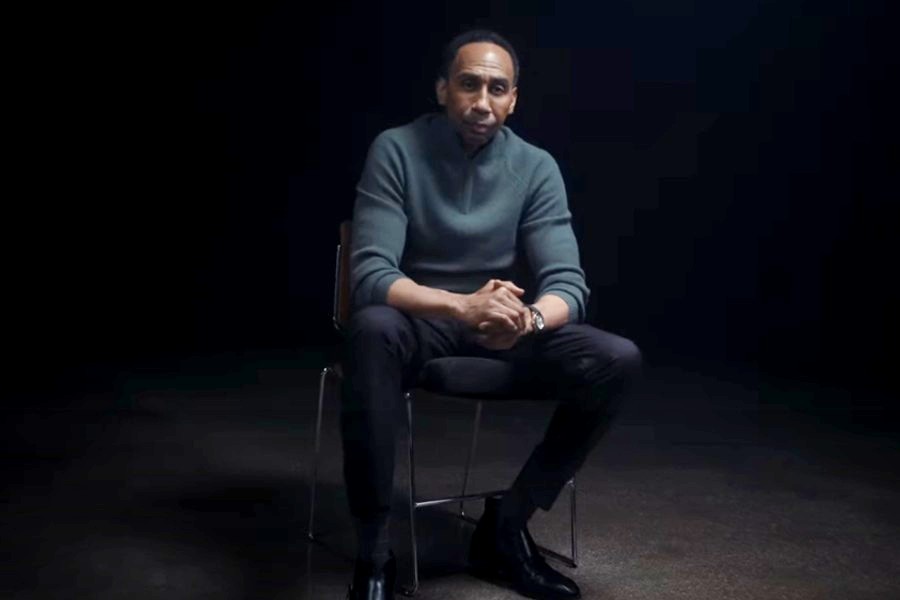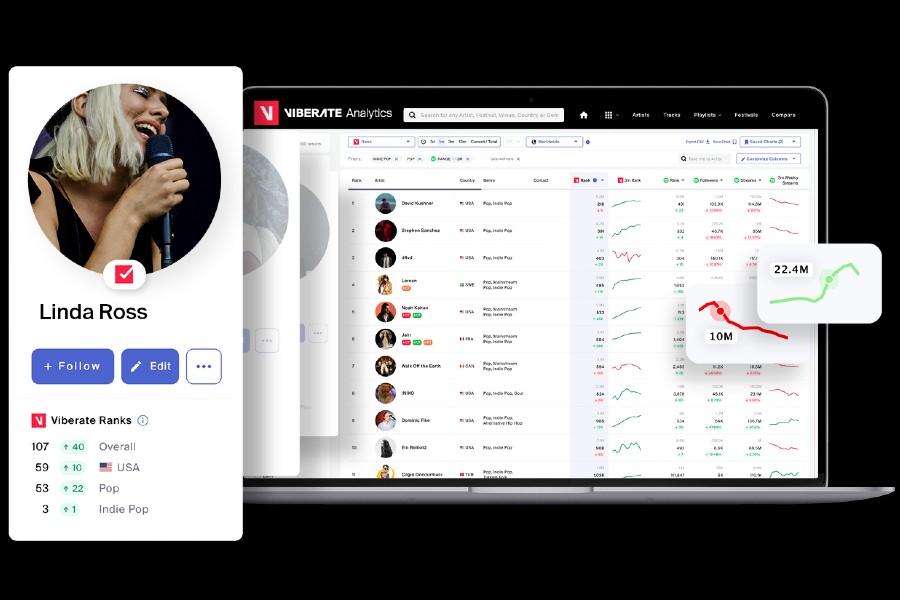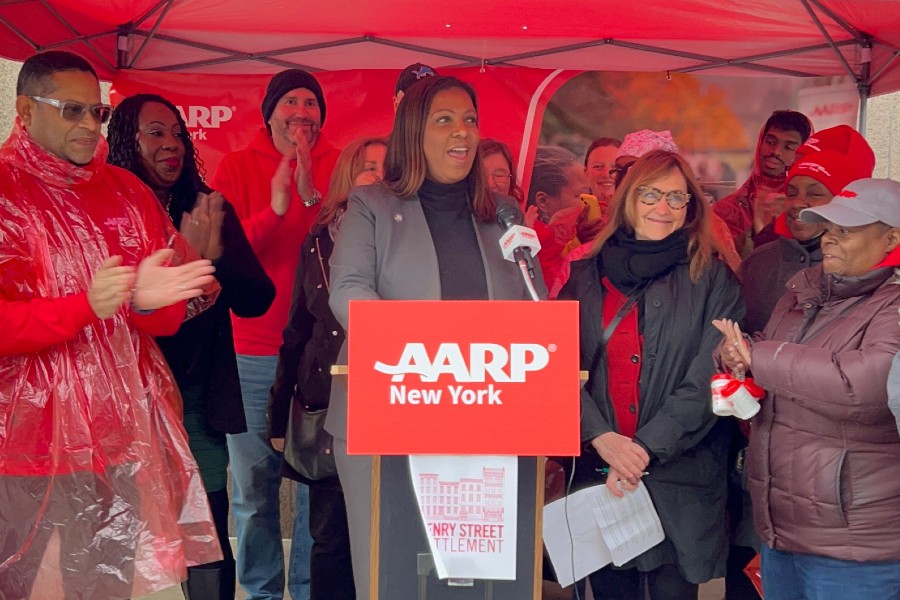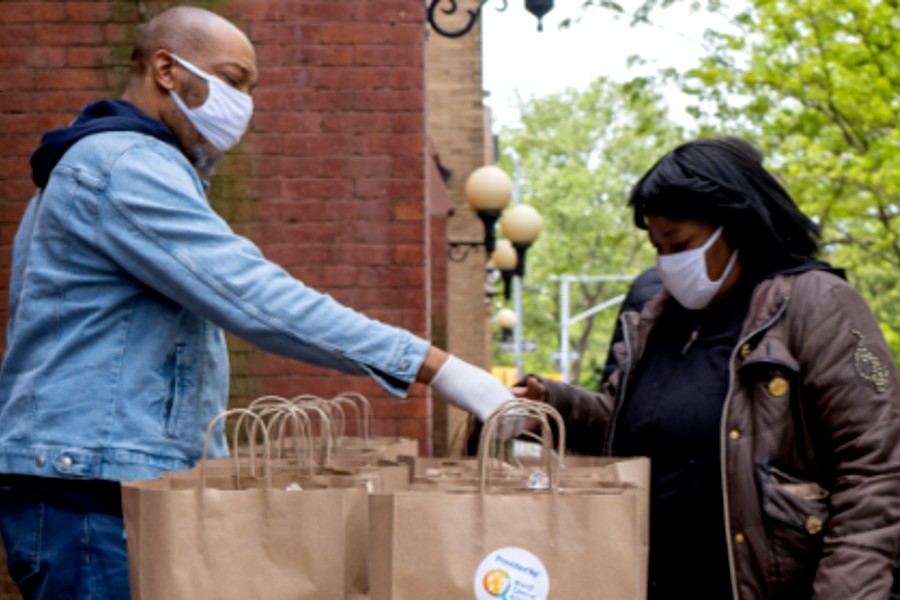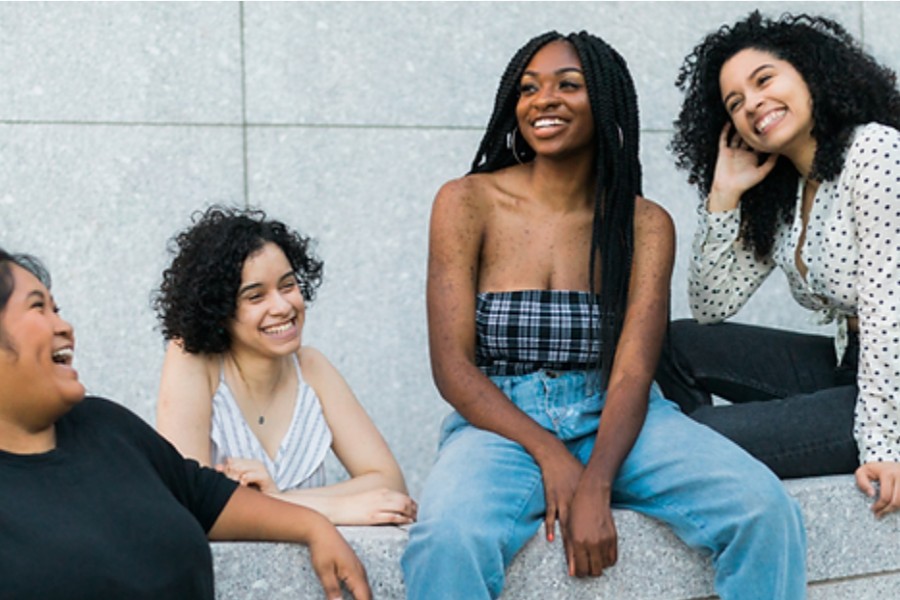
Mabel Louise Smith was born in Jackson Tennessee (May 1, 1924 – January 23, 1972). In the early nineteen thirties the young Mabel won an amateur singing contest in Memphis, and decided that performing was for her. She began her professional career on tour with The Sweethearts of Rhythm, an all female swing group that toured the South in the late thirties and featured Tiny Davis, Jackie Glenn, and Mattie Watson. In the early forties Mabel was part of pianist Christine Chatman’s orchestra (a decade later Chatman was a session pianist on some of Hank Ballard & The Midnighters sides for King) and made her first recording with that group in 1944 for Decca Records. Soon she toured with the Tiny Bradshaw band, and her work with him and Oran “Hot Lips” Page led to a couple of appearances on record for King in the late nineteen forties. By the start of the new decade she was now working as a single, but bookings were sporadic and recording sessions were non-existent. At an appearance with Jimmy Witherspoon at Detroit’s Flame Show Bar in 1952, the struggling performer gained notice, and soon it paid off.
Okeh Records, the newly revived R & B offshoot of Columbia records was developing a roster of recording talent when word was passed about the blues belter based in Cincinnati, Mabel Smith. The people at Okeh liked what they saw and heard, and so the newly renamed Big Maybelle was signed to the label in September of 1952. Her first session for the label produced the song “Rain Down Rain” written by promising composer Lincoln Chase on #6931. The flip side was “The Gabbin’ Blues”. This very first session produced the first success of Maybelle’s career. “Gabbin Blues” along with Chuck Willis “My Story” resulted in the biggest month for the label ever and the first time Okeh had two top ten sellers on the list at the same time. Maybelle was an in person smash in Philadelphia, first for a week at the Earle Theater along with Willie Mabon, and then at a number of nightclubs in that city including Pep’s and Emerson’s cafe.
Early in the new year Maybelle appears at an unusual double bill with Varetta Dillard at Detroit’s Flame Show Bar. In late January Big Maybelle embarks on a two month tour of mostly one nighters throughout the Midwest. As her Midwest tour ends, she is part of the “Broadway Revels” revue at the Howard Theater in Washington, D.C. In April of 1953 Okeh releases #6955 by Big Maybelle – “Way Back Home” and “I Just Want Your Love”. She goes out on the road again to the Midwest first in Chicago with Errol Garner, and featured by a week’s stay at Kansas City’s Orchid Room. In a bit of regionalization, the record does not sell in the East, but in the Midwest and Tennessee, “Way Back Home” is a big seller. In August “Send For Me” and “Jinny Mule” are released by Okeh Records on #6998. The Midwest is once again kind to the singer as “Jinny Mule” sells big in Detroit, Cincinnati, and St. Louis. In November Big Maybelle is a hit at the Club Baby Grand in Harlem, appearing with The Wanderers. In a testament to Maybelle’s popularity during her first year for Okeh, Cash Box Magazine awards Maybelle the number three position as best female R & B performer behind Faye Adams and Dinah Washington.
In mid January of 1954, Okeh releases #7009 – “My Country Man” which again does well in the Midwest, and this time the record enjoys good sales and airplay in the South especially in Atlanta. This is followed in April with Okeh #7026 – “You’ll Never Know” and “I’ve Got A Feelin”. This time there is not much action on the record. In April Maybelle shares the stage in Detroit with Wynonie “Mr. Blues” Harris, Bull Moose Jackson, and old recording partner Tiny Bradshaw. Big Maybelle makes two noteworthy appearances in the New York metropolitan area – first at a big July 4th outdoor show and picnic held by WNJR radio in Newark, New Jersey. The second was a landmark R & B revue at the Brooklyn Paramount Theater over the Labor day weekend. This was the last time a big show of this kind would be held under the category of Rhythm & Blues, as the Rock ‘n’ Roll explosion was weeks away. This show was the first indication of the interest of this music by White teenagers in the East. Maybelle appeared with The Drifters, Roy Hamilton, Faye Adams, LaVern Baker, The Spaniels, The Counts, Rusty Bryant, and Erskine Hawkins. Okeh #7042 is released in October – “My Big Mistake” and “I’m Getting Along All Right”. The Apollo Theater in New York headlines Big Maybelle along with Gene Ammons and his combo.
Big Maybelle begins 1955 appearing in an all star revue at Chicago’s Trianon Ballroom. She continues to tour with the show which ends at Symphony Hall in Boston in Mid-March. In the Spring “Don’t Leave Poor Me” and “It Ain’t No Use” are released on Okeh #7053. She is well received at a two week stay at Gleason’s in Cleveland, and appears at The Howard in D.C. with The Rivileers and Gene Ammons. In September Big Maybelle’s recording of “One Monkey Don’t Stop No Show” gets good airplay on R & B radio stations around the country, but sales are disappointing. The song would be revived by many other performers. The same thing happens to her original rendition of “Whole Lotta Shaking Going On” (which was produced by a young Quincy Jones), which didn’t do much for Maybelle’s career, but of course produced a cataclysmic hit for Jerry lee Lewis and became one of the true defining moments of rock history (Jerry by the way often cites the original as by Willie Mae “Big Mama” Thornton). Record sales may be lagging, but Maybelle continues to be a big draw in the Midwest. She sells out a week at Chicago’s Crown Propeller Lounge, and does well with Nappy Brown and Red Prysock at that city’s Regal Theater.
In 1956 Big Maybelle begins the year with two weeks in Buffalo, New York. Okeh releases “Such A Cutie” and “The Other Night” on #7066. Once again the record fails to sell. Meanwhile Maybelle returns for a week’s stay at Chicago’s Crown Propeller. Okeh Records drops Maybelle, but she is immediately signed to Savoy. What happens next almost defies description. Somebody at Savoy, whether it was Kelly Owens, Ernie Wilkins (both arrangers and session leaders who worked at Savoy), or someone as yet unknown (possibly her soulmate at the time Van “Piano Man” Walls ?) to history made a decision.
[youtube http://www.youtube.com/watch?v=LKNIbNADr-o&w=420&h=315]
The idea was to record Big Maybelle doing a bluesy ballad version of Johnny Mercer’s 1940s tune “Candy” (Mercer wrote and recorded a number one rendition of his tune), she also received a Grammy Hall of Fame Award in 1999. What emerged on Savoy #1195 was as personal a treatment of a song as could be performed. No one could duplicate the style and sound of this performance. The listening public agreed and the breakout was almost immediate. It was the biggest seller in the long history of Savoy Records getting into the top fifteen sellers on the national pop charts. The soulful delivery, the smooth orchestration, and the now famous trademark squeal at the end, all combined for a powerhouse record, one that made Big Maybelle a national star. She brings down the house at the big Dr. Jive show at New York’s Apollo Theater, and is now much in demand. Savoy soon tries again with the same formula, and again it is a success. Maybelle turns her talents on another pop standard “Mean To Me” on #1500 for Savoy, and as a nod to her vast popularity, Okeh rushes out a re-release of “Gabbin Blues” on #7069. Big Maybelle had finally achieved the national stardom that she had begun dreaming about since that day in Memphis more than twenty years before. She ends the year headlining the show at the Apollo with Etta James, The Clovers, and James Moody.
In April of 1957 Savoy tries again with Maybelle’s version of the pop standard “All Of Me” backed with “I Don’t Want To Cry” on #1512. The side starts off selling well in the Northeast and in Chicago and Milwaukee. Maybelle appears with dj Al Benson at Chicago’s Regal Theater in April. “All Of Me” sells big in Philadelphia. August of 1957 sees Savoy with a new release by Big Maybelle. It is “Jim” and “Rock House” on #1519. During Labor Day week of the year Maybelle appears on stage at New York’s Apollo Theater with Jocko Henderson for a big show headlining Bo Diddley and Fats Domino. Also on the bill are The Cookies, Harptones, and Lee Andrews & The Hearts. After that show Maybelle hits the road with Lowell Fulson and Jimmy Beasley for a series of one nighters in the South. In October Savoy releases an LP called Big Maybelle Sings on #14005. In early November Maybelle returns to Chicago for another big revue with Al Benson at the Regal Theater. In December Savoy releases the seasonal “White Christmas” and “Silent Night” on #6041. At year’s end Savoy re-releases “Ring Ding Dilly” backed with “So Long” on #1527. In 1958 Maybelle tours with the Joe Morris band across the country. Her two ballad hits are showstoppers. Savoy #1527 of “So Long” is being pushed hard by the label. In May Big Maybelle is involved in legal action as a recording contract she signed with jazz label Vanguard Records is challenged by Savoy. The plans were for a series of sessions to be produced by John Hammond that would include Maybelle’s versions of classic blues and jazz songs. Herman Lubinsky of Savoy claims the singer has a binding contract with that label. Also that summer, Big Maybelle was a performer at the Newport Jazz Festival in July of 1958, and is seen in Bert Stern’s great documentary of that concert called “Jazz On A Summer’s Day”. That summer Savoy releases #1536 – “Blues, Early, Early” parts one and two and is listed as Big Maybelle Smith. In the middle of all the Savoy-Vanguard fuss, Maybelle goes and records an album for MGM Records ! More litigation ensues.
In early 1959 Savoy releases “Say It Isn’t So” and “Baby Won’t You Please Come Home” on #1558. Big Maybelle’s next for Savoy comes out in late June of the year. It couples “Pitiful” and “A Good Man Is Hard To Find” on #1572 which has good initial sales. In October “Some Of These Days” and “I Understand” both recorded with a big string section is released on Savoy #1576, while “A Good Man” is still selling. Big Maybelle never again attained the height of success that she enjoyed in 1956, but her place in music history was assured. The recordings of “Candy” and “Ring Ding Dilly” luckily preserved from the Alan Freed live radio show on CBS network, show Maybelle’s ability to get the audience into the act and become a great live performer. She recorded the up tempo tunes “That’s A Pretty Good Love” and “Tell Me Who”, and then for her last session for Savoy in 1959 tried some pop outings complete with strings. The best of these was her version of “Until The Real Thing Comes Along”. Big Maybelle continued to record for various labels such as Brunswick, Scepter (which produced a fine effort called “Yesterday’s Kisses”) Chess, and Rojac, for whom she did a cover of “96 Tears”. Maybelle also continued to perform in person into the early sixties, when the battle with drug addiction and health problems took their toll on her. From the mid sixties on she performed on an irregular basis, settling down in Cleveland. Big Maybelle died in a diabetic coma in 1972, in Cleveland, Ohio. Her final album, Last of Big Maybelle, was released posthumously in 1973.
Mabel Louise Smith was fortunate to change up and become a top selling recording artist in the midst of the rock ‘n’ roll era which assures her a place in the hearts and minds of so many that were there during those musically revolutionary times. Rather than becoming one of the many talented but neglected performers who shaped the music of the last fifty years and were then discarded from the writing of the history, Big Maybelle remains as a performer who bridged the gap between the R & B days, to the rock music future. For this we can all be thankful.
The melody does indeed linger on as CD re-issues are available that show the full range of the vocal talent of Big Maybelle. The best are “The Complete Okeh Sessions”, “Big Maybelle on Savoy”, and the late 50s on that label are represented in the double CD issue entitled “Blues, Candy, and Big Maybelle” on Savoy.
The album The Okeh Sessions on the Epic label, won the 1983 W. C. Handy Award, for “Vintage or Reissue Album of the Year (U.S.)”
Related articles

Become a Harlem Insider!
By submitting this form, you are consenting to receive marketing emails from: Harlem World Magazine, 2521 1/2 west 42nd street, Los Angeles, CA, 90008, https://www.harlemworldmagazine.com. You can revoke your consent to receive emails at any time by using the SafeUnsubscribe® link, found at the bottom of every email. Emails are serviced by Constant Contact







